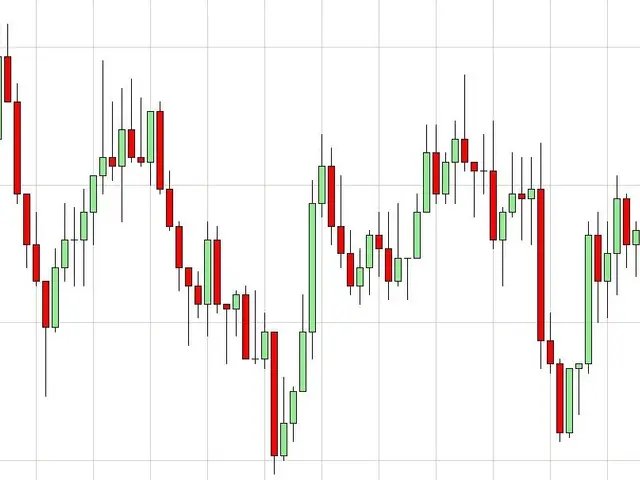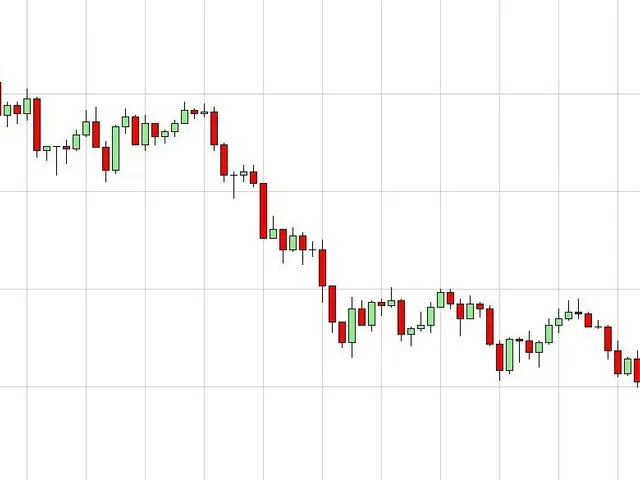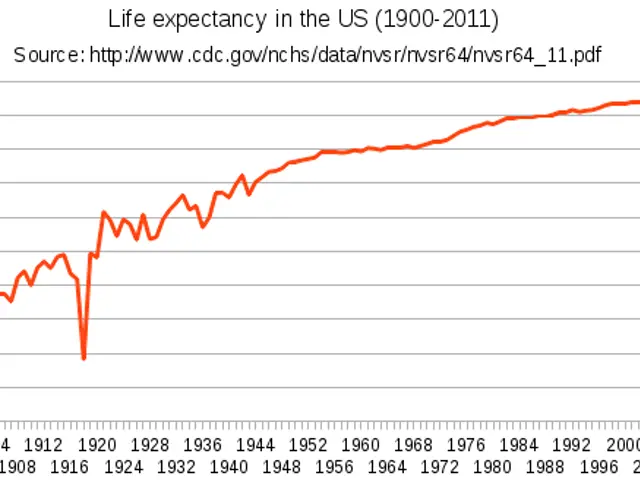Markets Maintain Stability amidst Intensifying Middle Eastern Conflict - Oil Prices Dip
In the heart of Europe, stock markets such as the DAX and the EuroStoxx50 maintain an almost unfazed demeanor, despite the volatile Middle East conflict. On a typical Friday morning, the DAX stood tall at 23,572 points, while the EuroStoxx50 boasted a near half-percent gain at 5,313 points. However, Israel's military action against Iran drove the stock market indicators down by roughly one percent each, as the week came to a close.
Oil prices, usually buoyed by such geopolitical tensions, experienced a hiccup, with Brent crude and US light crude WTI dropping around one percent to $73.49 and $72.33 per barrel (159 liters) respectively. Gold, customarily a safe haven during times of crisis, saw a half-percent dip to $3,416 per troy ounce.
Jürgen Molnar, a strategist at broker RoboMarkets, offered an explanatory take: "Investors might either be growing numb to international conflicts or perceiving this escalation as less than a full-blown war." The ongoing back-and-forth between Israel and Iran, resulting in fatalities and injuries on both sides, added to the uncertainty. Israeli Prime Minister Benjamin Netanyahu suggested the potential outcome of military operations could include regime change in Iran, a trigger that Israel claims is vital for its survival. The Iranian leadership, however, continues to deny Israel's right to exist and reject allegations of seeking nuclear weapons.
Yet, experts urged caution. Christian Henke, an analyst at broker IG, made this warning: "Investors hold onto hope that the US and Russia can prevent further escalation, but that hope could be misleading." An Israeli assault on Iran's oil industry, coupled with a closure of the Strait of Hormuz by Tehran, could have severe repercussions for future oil supplies. "If oil prices surpass $100 once more, Germany might be on the verge of another recession," warned Jochen Stanzl of CMC Markets.
Investors kept a watchful eye on the Federal Reserve's meeting set for Wednesday. Despite continuous criticism from the White House, the Fed is likely to bide its time before introducing a rate cut. The key interest rate is expected to remain within the range of 4.25 to 4.50 percent, a stalemate that has been in effect since December and has displeased US President Donald Trump, who advocates for significant monetary policy easing. Despite higher import tariffs, inflation has only crept up slightly as of late. "However, inflation dynamics could shift in the second half of the year if the impact of the tariffs becomes more pronounced," said Commerzbank strategist Rainer Guntermann. "The Fed is likely to remain patient, probably until September."
Defense sector shares edged higher. Renk, Hensoldt and Rheinmetall all saw gains of between half a percent and just under one percent. The European sector index also recorded an around half-percent increase. However, shares in flavor and fragrance manufacturer Symrise tumbled nearly 3.5 percent. US investment bank Jefferies downgraded the company from "hold" to "underperform."
Meanwhile, Renault shares dropped 6.5 percent at the Paris Stock Exchange. According to a news report, CEO Luca De Meo is set to depart the automaker to take the reins at luxury goods conglomerate Kering. The French newspaper "Le Figaro" reported that De Meo will succeed billionaire Francois-Henri Pinault. Renault confirmed that De Meo will leave the company on July 15, heading for an opportunity outside the automotive industry. Kering's shares surged nearly ten percent in response.
It appears that, despite the Middle East's tumultuous situation, investors are exhibiting remarkable resilience. However, any significant intensification could set off a chain reaction of economic and market consequences, making the stakes higher than ever.
- Despite the ongoing conflict in the Middle East, the European stock markets displayed a robust performance, with the DAX and the EuroStoxx50 showing gains, indicating that some investors might be growing numb to international conflicts.
- In the energy sector, the usual safe haven, gold, experienced a dip, while oil prices experienced a hiccup, with Brent crude and US light crude WTI dropping around one percent, signifying investor uncertainty.
- As the defense sector reported gains, the shares of Symrise, a flavor and fragrance manufacturer, plummeted after US investment bank Jefferies downgraded the company, hinting at a prevalent atmosphere of risk-taking and uncertainty among investors.







